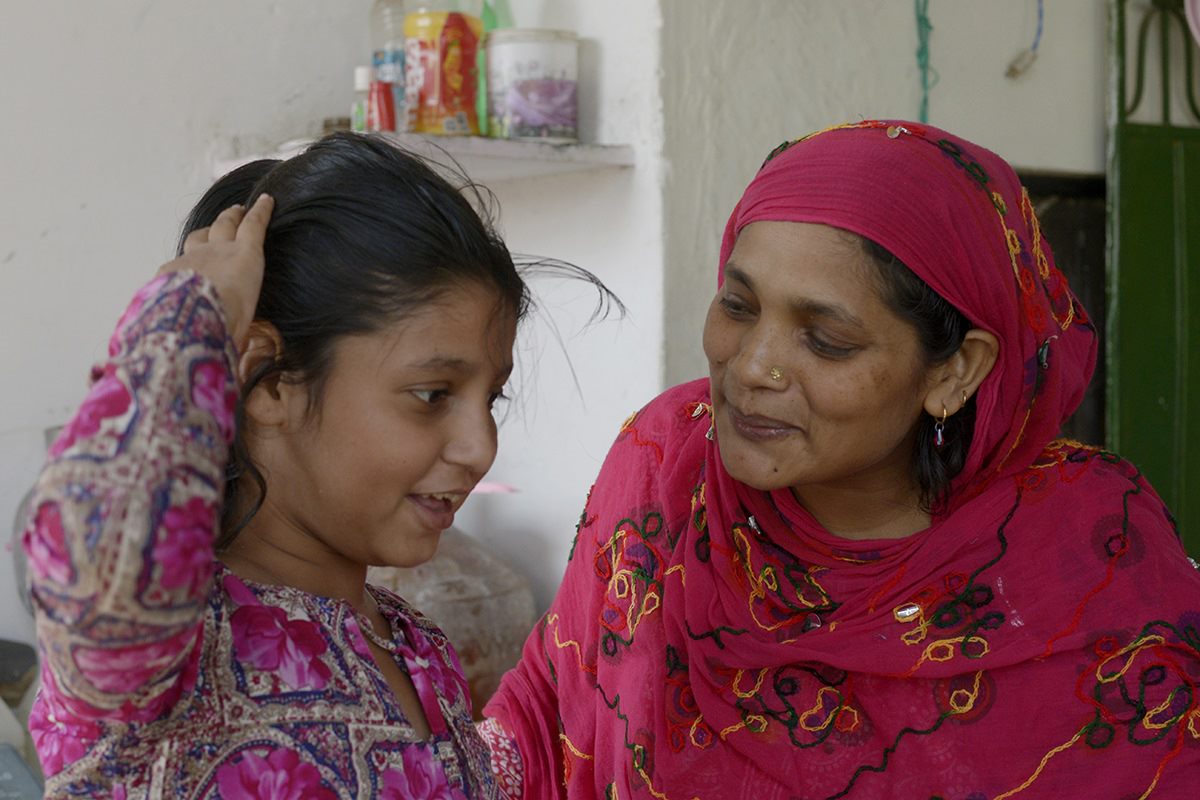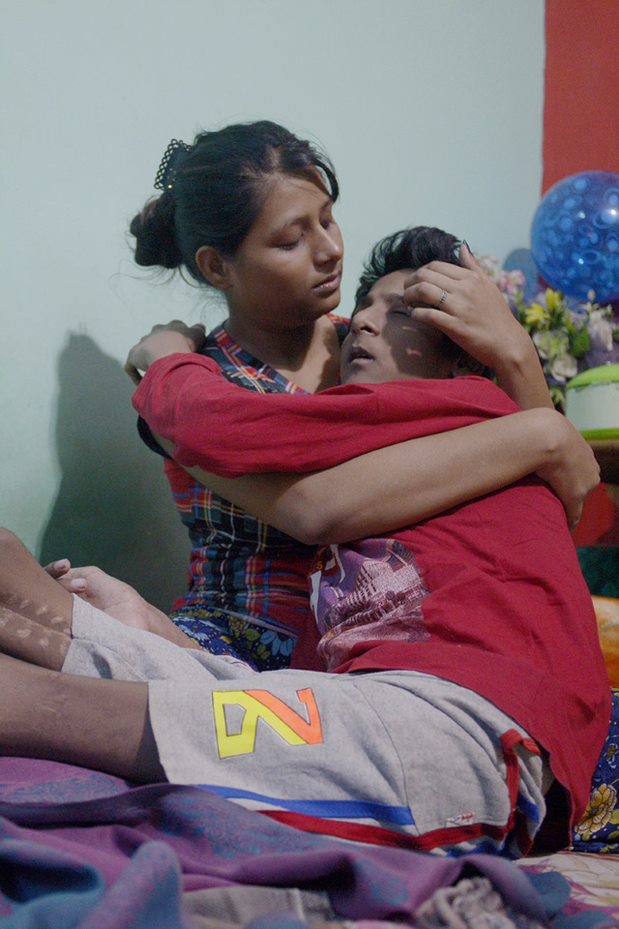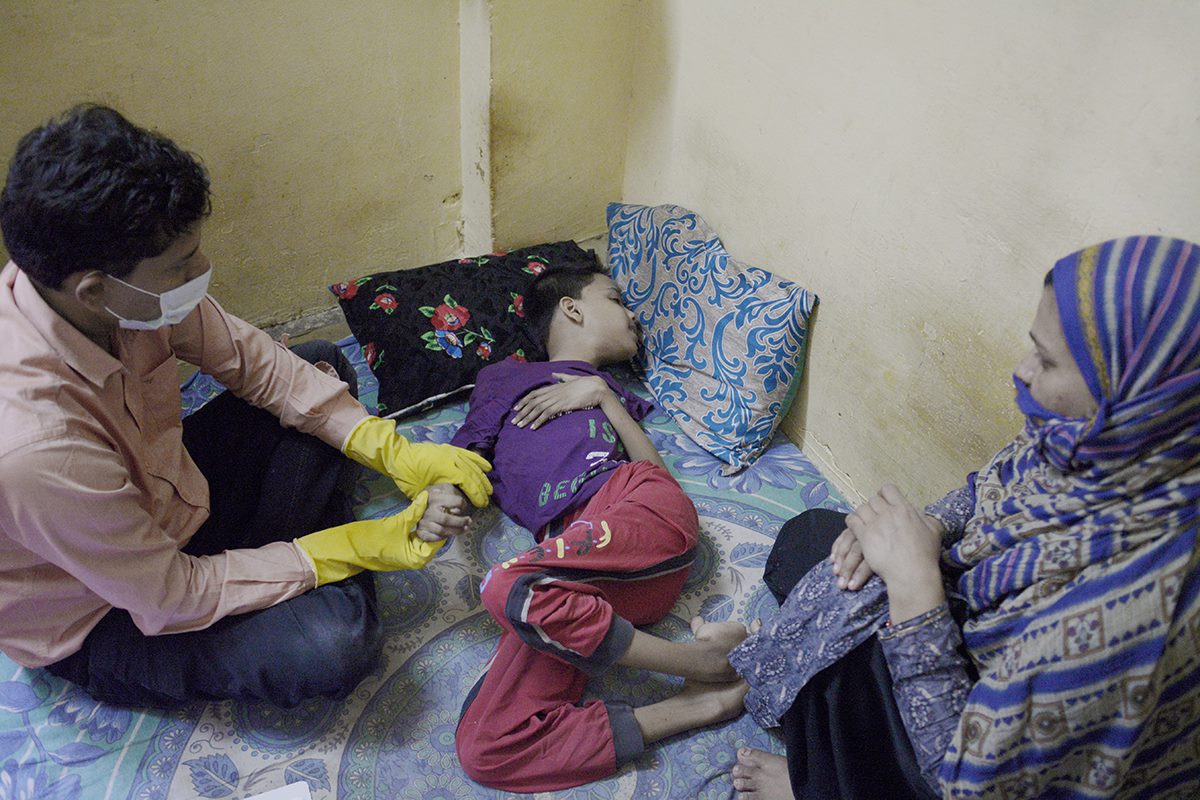This is the fourth and final blog in our series about Bhopali children by photographer and author Rohit Jain. This week we have the stories of Tahmina, Krishna and Zunaid. All three of these children were receiving regular treatment at the Chingari clinic before lockdown. In September, Rohit visited their families to speak with them about their experiences during the Covid-19 lockdown. Since these interviews were conducted Chingari has re-opened, and we are pleased to report that all of these children are once again receiving the regular treatment they need. We would like to thank all twelve of the children and their families who agreed to be a part of this series, as well as Rohit for taking these incredible pictures and sharing their stories.
All photographs by Rohit Jain.
Tahmina

15-year-old Tahmina has autism and ADHD.
She loves to dance to her favourite music. She longs to go out. She waits for someone in her family to take her out. Often, she stands at the window in her house and peeps outside, trying to find the source of sounds coming from outside. When she was younger she used to afraid of loud noises, but with the regular therapy she receives at Chingari she is doing very well.
Her father, grandmother and ‘bua’ (father’s sisters) were exposed to the MIC gas leak from the Union Carbide India Limited’s (UCIL) pesticide plant in Bhopal in 1984. Her grandmother, Bhoori Bi, recalls “we used to live near a cinema hall. Around midnight we heard a noise people from cinema hall, they were running indiscriminately. They were coughing. I also coughed, my eyes had burning sensation and I fainted after a while, leaving my children by own. Then, in the morning our relatives came to pick us and took us to see doctor. I couldn’t see with my eyes for around two weeks after the tragedy”. She still has problems with her chest and she eats her food without spices.
Bhoori Bi laughs as she grumbles about the difficulties of caring for Tahmina. “Her mother can’t go anywhere. If her mother goes outside even for a short while she will keep asking for ‘ammi’ (mother). She wouldn’t eat food until her mother feeds her.” Her mother, Tasleem, also laughs and says “She does drama!” Then she gets emotional and adds “Perhaps, we aren’t able to take care of her well”.
Tahimna likes to eat samosas, but it hurts her as she still has an infection in her mouth. A couple of year back she drank floor cleaner, which contains bleach, accidently. She thought it was the ‘rasna’ (cold drink) her cousin makes at home during the summer. Her mother tells me “She had almost died. This is her second life”.
Her mother said “with regular therapy, she understands things so well. She plays with her siblings.”
However, after the Covid-19 lockdown her regular therapy has been interrupted. She is walking on her toes again, rather than her whole feet, has become less active, and her communication has decreased. Her therapist Huma, from the Chingari Rehabilitation centre, said “Tahmina needs occupational therapy, primarily, along with speech therapy, special education and physio”.
Tahmina’s fear of strangers has also got worse since the lockdown began. Her mother tells me “She doesn’t gel with strangers. When someone visits us at home, she goes inside. She doesn’t go near to male guests.”
Krishna

The moment in this photo is full of love and care. It is so inspiring for me.
Krishna Bhargava, 15, wanted to sit, so his sister Chanchal holds and supports him. It is difficult for Krishna to sit by himself. He has severe Cerebral Palsy.
Both of Krishna’s parents were exposed to MIC gas that leaked from the Union Carbide pesticide plant. While there could be other causes of Krishna’s medical condition, research shows that rates of cerebral palsy, in particular, are far higher among the gas exposed population than elsewhere in the city. You can find many children with various disabilities in the 5 kilometre radius around the looming skeleton of the abandoned factory.
Krishna is so hilarious. He calls his father by his name and laughs. His favourite TV show is KBC. He watches cricket fondly.
Last year he underwent surgery on the tendons in his legs. Before the surgery, his legs always used to be in a scissors position. Although things improved after the surgery, since the covid-19 lockdown his regular therapy has been interrupted. His muscles have tightened again and he is less active than before. While he does have a weekly home visit from a therapist from the Chingari Rehabilitation centre, he needs to resume more regular therapy if his condition is to continue to improve.
Zunaid

14-year-old Zunaid has Duchenne Muscular Dystrophy (DMD). His elder brother, Tauhid, suffered from the same condition. He died four years back. He was 14 years old. Life expectancy with DMD is very low.
Zunaid saw his brother dying and has overheard conversations in his family. He knows he may also die soon. His muscles are weak and he fears stigma from the community. He doesn’t go out because he doesn’t like people to see him in this way. He struggles to use the washroom or eat by himself. His helplessness and dependency on others irritate him.
Many children with DMD suffer from depression. However, Zunaid’s parents, and his sisters before they married, care for him so well. The death of his elder brother Tauhid affected his mother a lot. When Tauhid was in hospital his mother went into trauma. She had high blood pressure and could not leave her home.
Zunaid and Tauhid used to do arts and crafts together when their muscle had strength, but at seven and ten years of age, respectively, their muscles started to weaken.
Zunaid’s parents are both gas survivors. Zunaid’s mother Nargis was six or seven years old when gas leaked. She used to live around four kilometers from the UCIL plant. She tells me “I don’t remember what happened that night exactly, but I had burning sensation in my eyes. We were all running indiscriminately to a safer place. Everyone was leaving their homes. Later, there were buses to take us to some other place”.
Zunaid’s father was a little older in 1984, and lived three kilometers from the UCIL plant. He recently underwent surgery for cancer. His surgery was supported by the Gas Relief Scheme, Zunaid’s mother told me. Zunaid’s maternal grandmother died of throat cancer in 2003. She was also exposed to the gas.
Zunaid and his family live in a single 100 square foot small room, including kitchen. Before the Covid-19 lockdown his father was a door-to-door fruit vendor, and continued to work even when he had health complications. But after the recent surgery he can’t do heavy work anymore. Since the lockdown, Zunaid’s mother’s small business of selling roti (flat bread) has also seen reduced orders. It is difficult for his family to feed him the proper diet of protein his muscles need. His mother says “we always priorities Zunaid’s diet irrespective of our financial situation”.
Support Chingari’s Work
The Chingari Children’s Rehabilitation Centre was able to re-open in December, around 6 weeks after these interviews were conducted. While we did our utmost to care for these children at home during the pandemic, with Chingari staff performing thousands of home visits during the months of lockdown, the health of hundreds of children like Tahimna, Krishna and Zunaid deteriorated without the daily care they so desperately need. Now Chingari’s doors are open again, we need your help to ensure they continue to receive daily therapy, care, education, and a community in which they are accepted and can thrive. We hope you will consider donating and supporting this important work. Thank you for reading.


